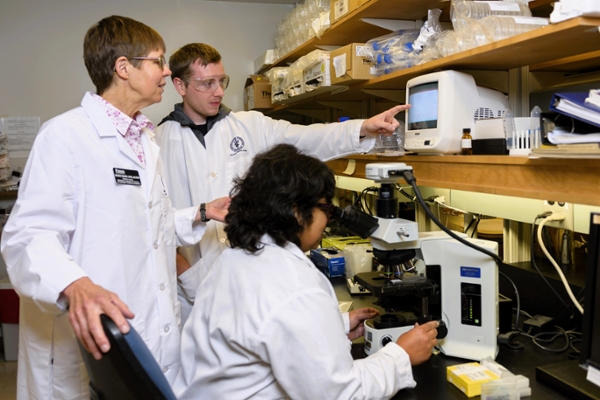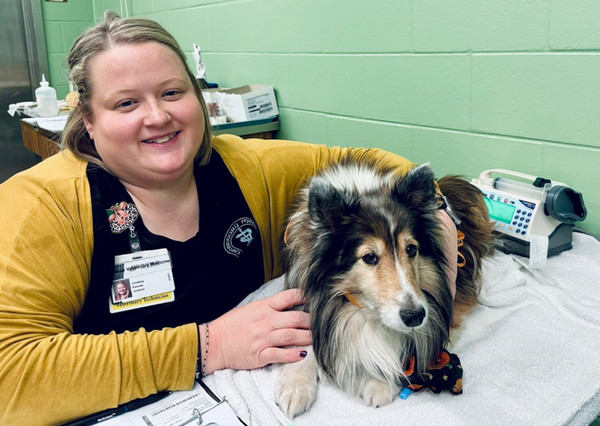
The Evan and Sue Ann Werling Comparative Oncology Research Center (WCORC) in the Purdue University College of Veterinary Medicine was formed to transform and grow research to improve the outlook for pet animals and humans facing cancer. The Center builds on a strong foundation in comparative oncology research that started with the Purdue Comparative Oncology Program in 1979.
Clinician scientists identify forms of naturally-occurring cancer in pet dogs that are similar to those same forms of cancer in humans. Subsequent studies are designed to be a "win-win-win" situation: the affected dog benefits by getting treatment for their cancer, the outlook for other dogs with that cancer may improve, and the successful results in dogs may lead to advances in humans with cancer.
The WCORC is also committed to providing compassionate care for pet animals with cancer, and for training the comparative oncology team of the future including veterinarians, veterinary technicians, veterinary oncology specialists, and other scientists.
Breaking New Ground: Innovative Immunotherapy Trial for Dogs with Bladder Cancer
The Werling Comparative Oncology Research team is thrilled to announce the launch of a groundbreaking clinical trial aimed at advancing treatment options for dogs diagnosed with bladder cancer. Led by Dr. Debbie Knapp, a distinguished veterinary oncologist with decades of experience, this team has long been committed to exploring new frontiers in cancer research. Dr. Knapp's dedication has bridged the gap between veterinary and human oncology research, recognizing that canine bladder cancer closely resembles human bladder cancer. Her work not only advances treatment for our canine companions but also contributes valuable insights into combating bladder cancer in humans.
This trial focuses on a novel immunnotherapy approach, utilitizing a cPD-L1 monoclonal antibody (mAb) developed by Purdue scientists. Unlike traditional chemotherapy, this immunotherapy aims to harness the dog's immune system to target and attack cancer cells. Above, Lindsey Fourez, a Clinical Trials Nurse, administers the first intravenous infusion of the cPD-L1 mAb to Millie, the first patient to enroll in the trial. Millie will recieve her infusion biweekly, with the team closely monitoring her response to this innovative therapy.
Learn more about Millie's clinical trial
Basic Cancer Research Applied to Answer Clinical Questions
In addition to diagnosing and treating cancer in pet dogs and cats, the WCORC team diligently works in a laboratory setting to discover new ways to prevent and treat cancer.
Dr. Deepika Dhawan, head research scientist of the Knapp Lab, and Alex Enstrom, laboratory technician, conduct specific tests on samples from the patients involved in clinical trials. The WCORC has gained extensive knowledge that have produced new developments in cancer research not just for pets, but humans as well. The Center often joins forces with human research scientists and medical professionals to maximize their potential for new findings in a variety of cancer types.



